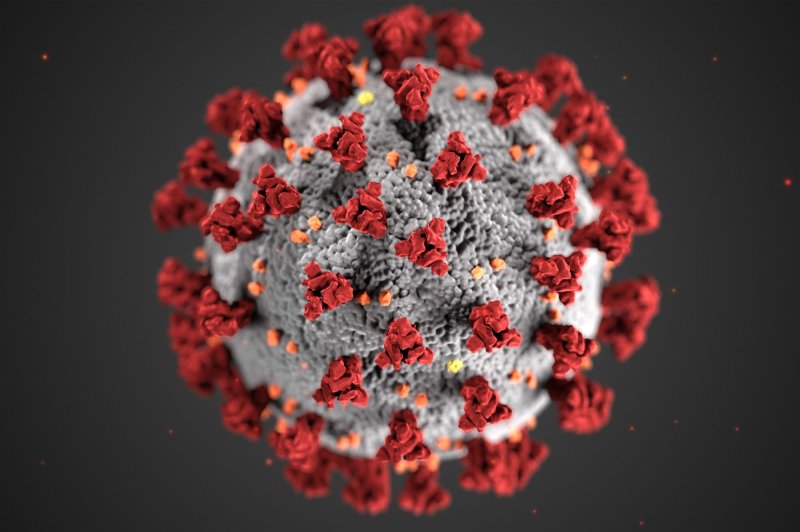The drug disulfiram may help treat severe COVID-19 lung damage, according to a new study. Photo courtesy of the Centers for Disease Control and Prevention |
License Photo
Feb. 8 (UPI) -- The drug disulfiram prevents the immune system from producing certain toxic fibers that help drive development of acute respiratory distress syndrome in severe COVID-19, a study published Tuesday by JCI Insight found.
Dusulfiram, which has been sold under the brand name Antabuse and is approved by the Food and Drug Administration for treating alcohol abuse disorder, blocks an enzyme called acetaldehyde dehydrogenase, the researchers said.
The enzyme is involved in the build-up of fat in the body, and It also appears to disrupt the formation of neutrophil extracellular traps, which are networks of made from the DNA of neutrophils, the immune system's first line of defense against infection, according to the researchers.
These traps essentially prevent neutrophils from attacking pathogens, such as viruses, when they invade the body, the researchers said.
Clinical trials assessing disulfiram as a potential treatment for COVID-19 are underway.
"Our findings provide a reason to hope that disulfiram may be a useful treatment," study co-author Mikala Egeblad said in a press release.
"We will continue exploring the drug's potential in a variety of conditions, [including] lung injury, cancer and other diseases that involve neutrophil extracellular traps," said Egeblad, a professor at Cold Spring Harbor Laboratory, a research facility in Laurel Hollow, N.Y.
Acute respiratory distress syndrome, or ARDS, is caused by rapid, widespread inflammation in the lungs, leading to symptoms such as shortness of breath and rapid breathing, according to the Mayo Clinic.
It is a common complication of severe COVID-19 and may cause lasting lung damage, research suggests.
The formation of neutrophil extracellular traps prevents the immune cells from attacking the virus that causes the disease, meaning it is allowed to enter the lungs, increasing the risk for the development of ARDS, Egeblad and her colleagues said.
Disulfiram, which has been used as a treatment for alcohol use disorders since the 1950s, appears to interfere with gasdermin D, a molecule needed to produce neutrophil extracellular traps, the researchers said.
In initial experiments using collected blood samples disulfiram prevented neutrophils from generating neutrophil extracellular traps, they said.
In addition, in mice with acute lung injuries, the drug was associated with a reduction in fluid accumulated in the lungs, which "dramatically improved survival," Scott Lyons, head of Animal Imaging at Cold Spring Harbor Laboratory, said in a press release.















